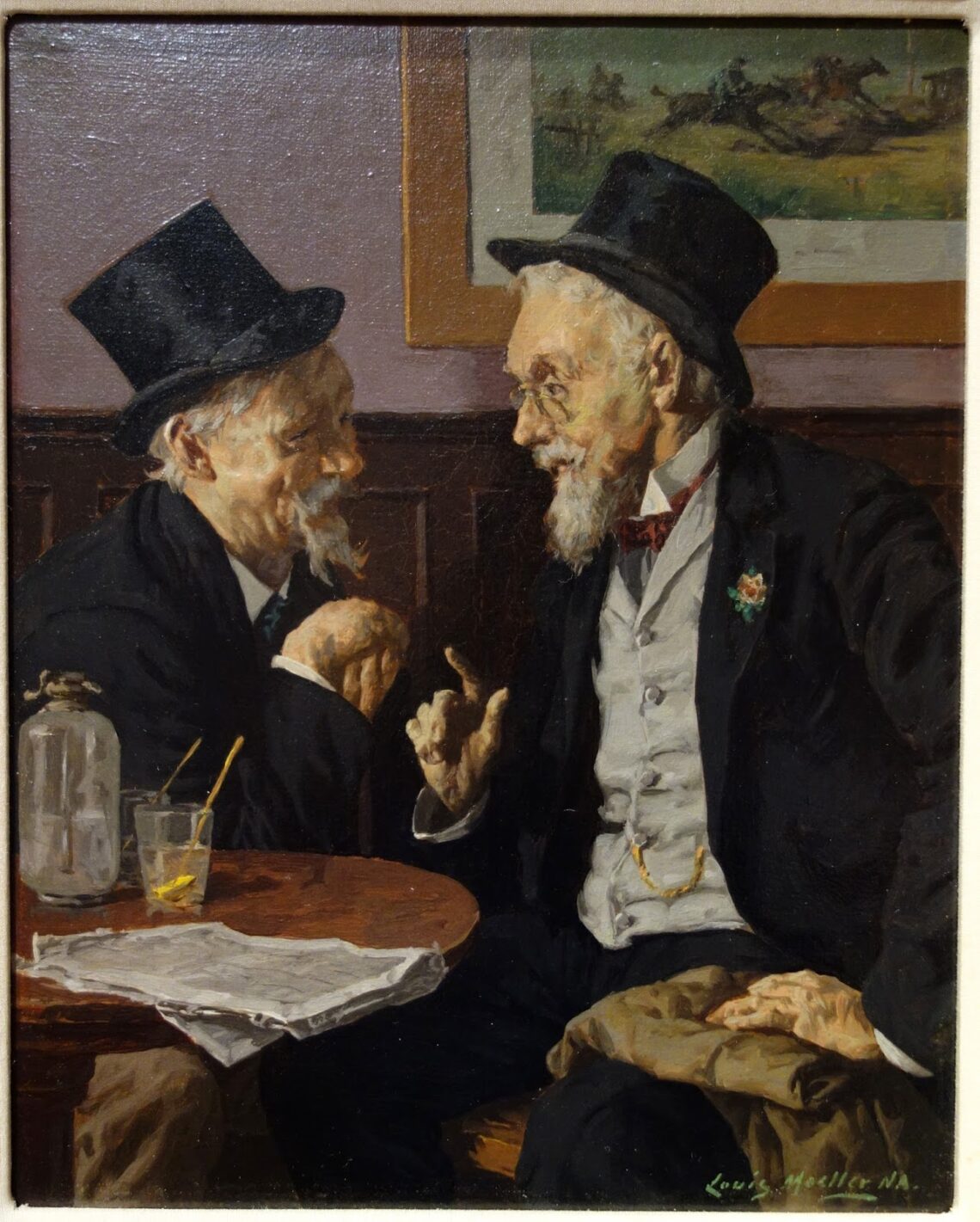“Aphasia, the loss of language following a brain injury, is devastating, and in severe cases family members may feel that the whole person is lost forever.” (Stephen Pinker, The Language Instinct, 2). Is fellowship possible without language? I don’t mean without the constant presence of language. Two people might not talk for a while but feel close to one another, but what if they never spoke to one another. What if, in the very nature of things, no one spoke? I suppose we could not know what our fellowship would be like. Would we be able to communicate in some way – by looking at each other? Perhaps we really…
-
- Epistemology, History of Ideas, Philosophical Theology, Philosophy of Education, Philosophy of Language, Philosophy of Linguistics
Classical Education: Loving the Rock of Reality
“Why Latin? Why Logic? Why only ‘great’ books?” Such are the questions levied at the classicist. They are good questions, but the best answers are not found in pragmatics, a list of the benefits of a classical education. Instead, the reason anyone ultimately prefers a classical approach to education is that she holds to a classical worldview. I say ‘ultimately’ because pragmatic answers don’t count for nothing. One cannot help using them in class to garner support for Latin verb endings. “Throughout history, the best authors were great Latinists” I said the other day. I had in mind one student whose mother had told me that she would like to…
-
The Logical Problem of Language Acquisition
In a recent interview, linguist, Noam Chomsky, repeated his claim that there must be some innate feature of human beings that makes it possible for them to acquire natural languages: “No one holds that the rules of language are innate. Rather, the faculty of language has a crucial genetic component. If that were not true, it would be a miracle that children acquire a language. That is obvious from the first moment of birth, when the child begins to pick out linguistically relevant information from the noisy environment, then following a predictable course of acquisition which, demonstrably, goes far beyond the evidence available, from the simplest words on to complex…
-
Voices in Our Heads?
James Krugel is Professor of Hebrew Literature at Harvard University. Krugel suggests that neuroscience can lend some understanding to biblical scholarship on how human beings might hear the voice of God. In a recent interview, Krugel suggests that the ancient worldview of the prophets included the idea that the mind could be penetrated by spiritual entities: The human mind could be penetrated by outside forces. Not only by God—who is sometimes depicted as going inside people, “probing their kidneys and heart” to find out what they’re really thinking—but by various sorts of “spirits.” Some of them were benign, but others were wicked spirits dispatched by Satan to take over. They…
-
Why No One Mentions Dogs and Aliens Anymore
No one lies about what happened to their homework anymore. We don’t tell teachers that the dog ate it, or that aliens stole it. Instead, contemporary excuses are of two sorts. The nativist excuse suggests that there is some innate deficiency in the student that determines that she is unable to achieve success in some discipline. For example, upon receiving a terrible grade on her math test, a student may remark, “I’m just not a math person.” According to the nativist, one’s success or failure is determined by an innate ability (or inability) to succeed in a given domain of learning. The excuse implies that failure on a test is…
-
Human Beings – the New Morality and Kind Determination
Pre-mods generally thought of human beings as a kind. Humans have a nature; they are ‘rational beasts’ or embodied souls. Mods were not so concerned with human nature; they were more concerned with what we could know and how we could know it. According to mods, we are thinking things or blank slates. In the twilight years of the Enlightenment, Hume cast doubt on whether there was such a thing as human nature. Aren’t we all just a bundle of experiences? The first generation of post-mods agreed with his conclusion and suggested that we are all social/linguistic constructs at best. The most recent generation of post-mods found such skepticism dull.…
-
From Sentences to God
From a very young age, we can recognize the quality of sentences. We evaluate sentences according to some standard, some criteria of good, bad, better, or worse. If God created the world then it is likely that he would endow human beings with some way to recognize good and bad sentences according to some standard. One might think that this would entail that human beings know what makes sentences good or bad. But recognition of the value of an entity does not entail knowing what makes it valuable. This is true of good and bad actions as much as it is true of good or bad sentences. One might not…
-
Logic and Obligations
Jason Lisle argues that we have a moral obligation to be logical: “Thinking rightly is not optional… It is something God requires of us.” His argument is as follows: To think logically is to think – in a sense – like God thinks. And, by definition, to be logical is to reason correctly. This makes sense when we consider that God always thinks correctly. God is the ultimate standard of correctness. So if you want to think about a particular topic correctly, you must think about it in the same basic way that God does. The argument depends on what it means to think about something ‘in the same basic…




